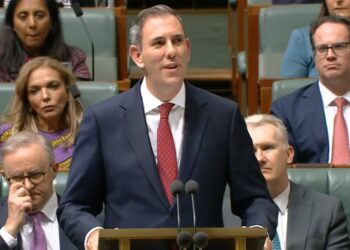In its submission to ASIC’s consultation on affordable advice, the association said the repeal of the safe harbour provisions within the Corporations Act would act as a means of “simplifying compliance and promoting a principles-based approach to regulation”.
The FPA pointed out that this was consistent with recommendation 2.3 of the royal commission’s final report, which said the safe harbour provisions should be repealed following a review of advice regulation by ASIC in 2022, if there was no “clear justification” for retaining the provisions.
Licensees have suggested the provisions are a key barrier to allowing the delivery of compliant scaled advice, with Lifespan Financial Planning chief executive Eugene Ardino previously commenting that they mandate an “enormous amount of investigation” by advisers regardless of the level of advice requested by the client.
“Acting in the best interest of the client is not good enough, you’ve got to be able to prove by documentary evidence that you’ve met BID and the only way you are able to do that with certainty is follow safe harbour, which requires an enormous amount of investigation, research and documentary evidence,” Mr Ardino said.
“You can’t discard things that seem obvious from experience, you’ve got to document why you’ve discarded it otherwise an auditor may pick you up on that. All it means is advisers, there is no exception, you have to abide by these rules or the consequences are quite serious.”
The FPA said the repeal of the provisions should “be combined with other efforts to reduce duplication and overlap in financial advice regulation”.
“For example, financial planners are currently expected to comply with three distinct ‘best interest’ duties, which are each expressed slightly differently and only one of which has a safe harbour provision,” the association said.
“The FPA has called for a single set of standards to apply to financial planners and as an interim step supports better alignment of the existing standards.”
FASEA removal the first step of many
The move is one of a number of suggestions to improve the regulatory framework of advice that has emerged as industry submissions to ASIC’s consultation start to flow through.
In its submission, the FPA also suggested the government’s move to roll FASEA’s powers into ASIC and Treasury did not go far enough in terms of streamlining regulatory requirements, given multiple bodies would still be involved in professional standards.
“Splitting standard-setting and enforcement activities is not ideal and will require close co-operation between those two agencies,” the association said.
In addition, the FPA noted that the role of the TPB in enforcement of adviser standards going forward was also not clear, as a review of the board’s capabilities released at the end of 2020 had recommended it be rolled into the adviser disciplinary body.
“A single government body should be responsible for overseeing financial planners, including setting mandatory entry, professional standards, investigating breaches of mandatory professional standards and other legal requirements, and conducting disciplinary proceedings,” the association said.
Meanwhile, WA adviser Steve Roxburgh drew attention to the incoming compliance costs of new annual fee agreements in his submission, noting that removing the requirement for all clients to opt in annually would significantly reduce the cost burden on advisers.
“Ongoing financial advice support service fees must become as low cost as a mobile phone. A five-year (60-month) service support contract, similar to a low-cost mobile phone contract, can combine a full review every five years, plus ongoing service support,” Mr Roxburgh said.
“Moving to five-yearly informed consent arrangements will see increased regulatory based administrative costs fall from $28 million to only $5.6 million [per year].”
Mr Roxburgh also said the differing regulatory obligations between retail and intra-fund advisers were contributing to a shrinking pool of practitioners able to give personal advice.
“Intra-fund adviser numbers have tripled over the past three years, whereas retail adviser numbers have fallen dramatically. Unaligned retail financial advisers now suffer an unlevel playing field, with default super fund product manufacturers and their intra-fund personal advisers permitted to manage any vertically integrated conflicts of interest, whereas retail advisers are not,” he said.
“Super fund members paying ongoing intra-fund advice fees are not required to provide informed consent or ongoing fee agreements for the advice fees they pay every month. Collective fees should not be charged to default super fund members unless the fund trustee obtains annual consent for these advice fees charged from their fund, so long as annual consent is required of advisers.”




This was proposed in 2014. Nothing has changed
In the meantime (because none of this insanity will be fixed in the short term) you simply need to pass on the cost to the client/consumer. It isn’t your fault. The client understands this fact.
too late to have some (FPA) common sense now….(LOL)
A good suggestion. Codifying a best interests duty does not necessarily mean a person is acting in their client’s best interests. All it means is ticking a box. The sooner it is repealed the better.
Hear hear…
…and i’m even more confused than i was last week
The FPA is clearly on the payrole of large super funds now. There’s a push by industry super funds to be able to flog their product with as little paperwork as possible. You can’t start from that position. You need to act holistically. Otherwise financial planners the discrepancy between the two groups are going to be too large.
Good suggestion from the FPA and it’s about time they started calling out some of the nonsense regulations. It would be nice to see the other professional bodies come out in support of this, and while I am floating in this wave of euphoria maybe our weak-as-piss dealer groups could also get together and sign a joint letter of support for this idea. If the Government took up this suggestion, it could pave the way for thousands of financial planners, who have already mentally checked out, to reconsider their exit from our profession. More needs to be done, such as FASEA code amendments and an end to this ridiculous look-back witch hunt. But it would be a good start.
Excellent point re dealer groups Jimmy. their “weight of numbers” as a cohort would be politically powerful.
If the dealer groups aka licensees were all going to a BBQ I bet they would all bring the same sausages because they don’t communicate with each other. There is the problem with that idea.
Anyway just control what you can which is passing on all these ridiculous red tape costs to consumers.